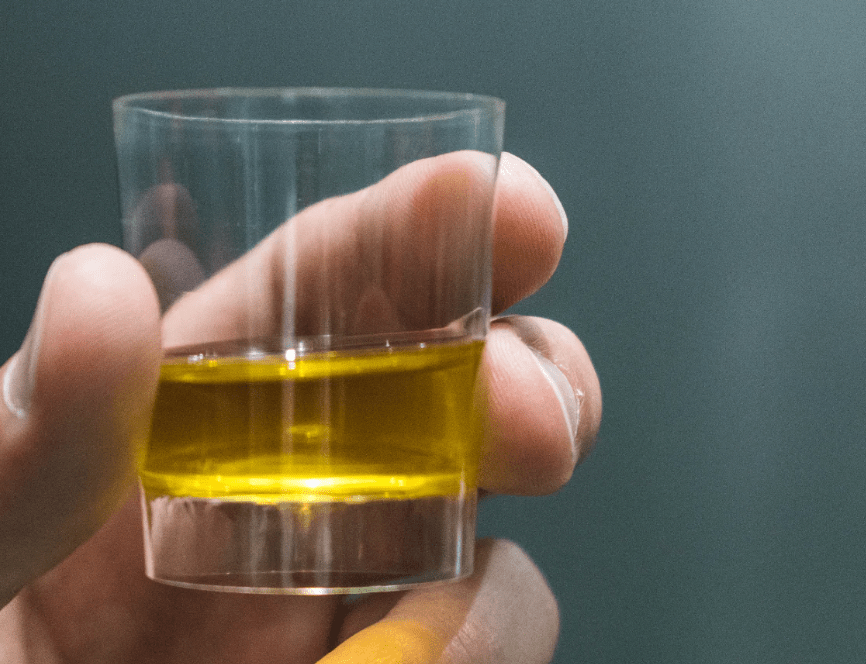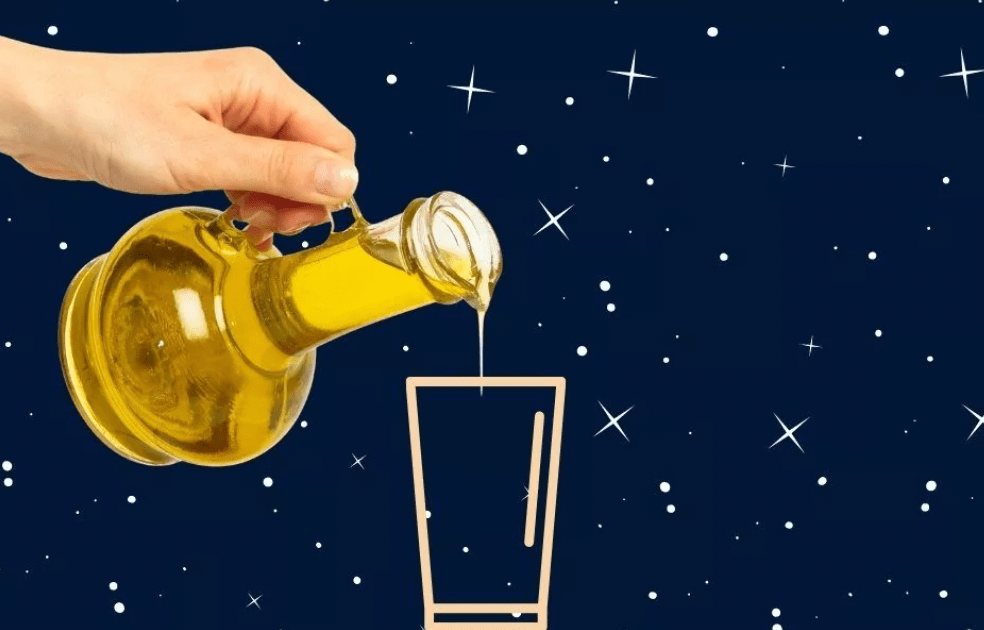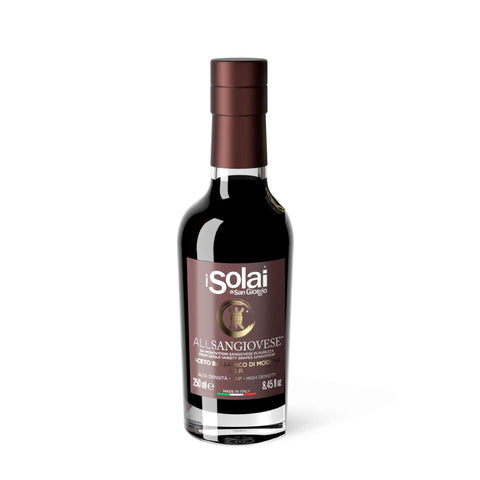
Olive oil is deeply rooted in Mediterranean traditions, where it is highly valued for its health and culinary benefits. At McEvoy Ranch, we produce extra virgin olive oil on our 550-acre working farm in California, which is not only rich in flavor but also offers numerous health advantages.
Consuming olive oil can improve digestion, support weight management, and provide a variety of other health benefits. But what exactly happens when you drink olive oil, and is it a habit worth adopting?
In this article, we will explore the effects of drinking olive oil, the associated health benefits, and recommendations on how much you should consume.
Key Takeaways
- Olive oil is the cornerstone of the traditional Mediterranean diet.
- People consume it for potential health benefits like improved digestion and reduced inflammation.
- Olive oil contains anti-inflammatory and antioxidant properties.
- It may support weight management by promoting a feeling of fullness.
Understanding the Practice of Drinking Olive Oil
In Mediterranean countries like Italy, Greece, and Spain, olive oil is a cherished tradition linked to the health benefits of the Mediterranean diet. Some people in these regions start their day with a shot of olive oil on an empty stomach, believing it enhances nutrient absorption and provides a concentrated boost of healthy fats and antioxidants.
Nutritional guidelines recommend that about 35% of daily caloric intake for adults come from healthy fats found in foods like avocados, nuts, and olive oil. While specific scientific research on drinking olive oil is limited, the overall health benefits of consuming olive oil—such as reducing inflammation and supporting heart health—are well-documented.
If you’re considering adding olive oil to your diet, start with a small amount, like a teaspoon, and gradually increase your intake to allow your body to adjust. Always consult with a healthcare professional before making significant dietary changes, especially if you have existing health conditions.
Health Benefits of Drinking Olive Oil
Extra virgin olive oil is known for its wide range of health benefits when consumed as part of a balanced diet. Here are some of the main benefits you might experience by drinking olive oil:
1. Promotes Heart Health
Olive oil is rich in monounsaturated fats, which are known to help lower the risk of heart disease. These healthy fats help maintain good cholesterol levels (HDL) while reducing bad cholesterol levels (LDL), contributing to better cardiovascular health.
2. Aids in Digestion
In 2024, digestive issues disrupted the daily lives of 40% of Americans. Drinking olive oil offers a potential solution by aiding digestion in two key ways. First, it acts as a natural lubricant for the digestive tract, helping food move more smoothly through the system. Second, it may help reduce stomach acid, providing relief from common digestive discomforts.
Olive oil is particularly beneficial for those who suffer from constipation. By incorporating olive oil into their diet, many people find they can manage their digestive health more effectively, leading to improved comfort and overall well-being throughout the day.
3. Supports Weight Management
Contrary to what one might expect from a high-fat food, olive oil can be a valuable ally in weight management when consumed in moderation. Its unique composition of healthy fats and bioactive compounds promotes satiety, helping you feel fuller for longer.
This increased sense of fullness can naturally lead to reduced calorie intake throughout the day, supporting healthy weight control without the need for strict dieting. Moreover, the monounsaturated fats in olive oil may help boost metabolism, further aiding in weight management efforts.
4. Reduces Inflammation
Olive oil is renowned for its potent anti-inflammatory properties, largely due to its rich content of polyphenols, including oleocanthal. This compound has been shown to have similar anti-inflammatory effects to ibuprofen, but without the potential side effects of long-term medication use.
By regularly consuming olive oil, you can help combat chronic low-grade inflammation in the body, which is linked to numerous health issues including heart disease, diabetes, and certain cancers. This anti-inflammatory action not only helps alleviate symptoms of existing inflammatory conditions but also promotes overall long-term health and well-being.
|
Benefit |
Impact |
|
Heart Health |
Lowers bad cholesterol |
|
Digestion |
Lubricates intestinal tract |
|
Weight Management |
Promotes satiety |
|
Inflammation |
Reduces bodily inflammation |
Incorporating olive oil into your diet can provide these benefits, but it’s important to remember that it works best when part of a balanced diet and healthy lifestyle.
Potential Risks and Side Effects of Drinking Olive Oil
While olive oil offers numerous health benefits, there are potential risks and side effects to consider, especially if consumed in large quantities.
Overconsumption and Weight Gain
Olive oil is calorie-dense, with approximately 120 calories per tablespoon. Consuming too much can contribute to weight gain if not accounted for in your overall calorie intake.
|
Amount of Olive Oil |
Calories |
|
1 tablespoon (15 ml) |
120 calories |
|
1/4 cup (60 ml) |
480 calories |
|
1/2 cup (120 ml) |
960 calories |
It's essential to factor in these calories when adding olive oil to your diet to maintain a healthy weight.
Digestive Issues
While olive oil can aid digestion in moderate amounts, consuming large quantities, especially on an empty stomach, may lead to digestive discomfort. Potential issues include diarrhea, stomach upset, and nausea.
To mitigate these risks, it's advisable to start with small amounts and gradually increase your intake as your body adjusts. This approach allows you to gauge your tolerance and minimize the likelihood of digestive distress.
By being mindful of these potential risks and practicing moderation, you can safely enjoy the health benefits of olive oil while avoiding unwanted side effects. As with any significant dietary change, it's always wise to consult with a healthcare professional, particularly if you have pre-existing health conditions or concerns.
How Much Olive Oil Should You Drink Daily?
The optimal amount of olive oil to consume daily varies depending on individual health goals and dietary needs. Most experts recommend consuming between 1 to 4 tablespoons (15-60 ml) per day for maximum benefits, replacing other fats in your diet. Here is a general guideline:
|
Daily Intake Level |
Olive Oil Amount |
Potential Benefits |
|
Low Intake |
1 teaspoon (5 ml) |
Gentle introduction to olive oil consumption |
|
Medium Intake |
1-2 tablespoons (15-30 ml) |
Improved heart health, enhanced digestion |
|
High Intake |
3-4 tablespoons (45-60 ml) |
Maximum potential health benefits |
Always consider your overall calorie intake and dietary needs when determining how much olive oil to consume. Consult with a healthcare professional before making significant changes to your diet.
The Best Time to Drink Olive Oil for Optimal Benefits
Timing can influence how your body benefits from olive oil consumption. Here are some points to consider:
- Morning Consumption: Drinking olive oil in the morning on an empty stomach can help improve digestion, however, some individuals may experience mild stomach discomfort.
- Evening Consumption: Taking olive oil at night may promote better sleep and aid in digestion while you sleep. However, it might cause discomfort in some people, so it's important to monitor your body’s response.
|
Timing |
Benefits |
Considerations |
|
Morning |
Boosts metabolism, improves digestion, provides energy |
May cause mild stomach discomfort for some |
|
Night |
Supports sleep quality, aids overnight digestion |
May cause mild stomach discomfort for some |
The best time to drink olive oil depends on your personal preferences and how your body reacts. Try both morning and nighttime to find what works best for you.
Extra Virgin Olive Oil vs. Regular Olive Oil: Which is Better to Drink?
For drinking purposes, extra virgin olive oil (EVOO) is the best choice. It is unrefined and made using mechanical methods which retains more nutrients, antioxidants, and a richer flavor profile.
Regular olive oil, in contrast, undergoes additional processing and refining, which reduces its nutritional value.
|
Characteristic |
Extra Virgin Olive Oil (EVOO) |
Regular Olive Oil |
|
Extraction Method |
Mechanical (cold-processed or centrifuge) |
Heat and/or chemicals used in processing |
|
Acidity Level |
≤ 0.8% |
≤ 1.0 % |
|
Polyphenol Content |
High |
Low |
|
Flavor Profile |
Rich and complex |
Mild and neutral |
|
Best Use |
Drinking, cold applications and cooking |
Cooking and frying |
Choose high-quality EVOO from reputable brands, and check for harvest dates and production methods to ensure freshness and maximum health benefits.
Tips for Incorporating Olive Oil into Your Diet Safely
To enjoy the health benefits of olive oil without adverse effects, follow these tips:
- Start with Small Amounts: Begin by adding a teaspoon to your meals and gradually increase as your body adjusts. Remember that olive oil is calorie-dense, so moderation when cooking with olive oil is key.
- Combine with Other Healthy Foods: Olive oil is versatile and pairs well with many foods. Use it as a salad dressing alongside vinegar, a dip for whole grain bread, or add it to smoothies for a creamy texture. Brush it on vegetables before roasting to enhance flavor and nutrition.
- Choose High-Quality EVOO:Opt for fresh, cold-pressed extra virgin olive oil in dark glass bottles to protect it from light and maintain its quality.
By following these tips, you can safely enjoy the benefits of olive oil as part of a balanced diet.
Final Thoughts: Should You Drink Olive Oil Every Day?
Drinking olive oil can be a beneficial addition to your diet, offering a range of health benefits from improved heart health to better digestion. Whether you choose to drink it or use it as a salad dressing or cooking oil, the key is to consume it in moderation as a substitute for other fats and as part of a balanced diet rich in fruits, vegetables, whole grains, and other healthy foods.
Before making any significant dietary changes, consult with a healthcare professional to ensure it aligns with your health goals and needs. While olive oil is a great addition to a healthy diet, it is not a cure-all and should complement other healthy lifestyle choices.
FAQs
What Happens If You Drink Olive Oil?
Drinking olive oil, particularly extra virgin olive oil, may have several health benefits and may contribute positively to your overall well-being. However, it is essential to understand the implications of consuming it regularly in liquid form.
What are the health benefits of drinking olive oil?
The health benefits of olive oil are numerous. It is rich in healthy fats and antioxidants, which can help reduce inflammation and improve heart health. Regular olive oil intake may also aid digestion and support weight management.
How much olive oil should you drink daily?
A common recommendation is to consume about 1 to 2 tablespoons of olive oil every day. This amount of olive oil can provide health benefits without excessive calorie intake. It’s best to start with a smaller amount and adjust according to your dietary needs.
Can drinking olive oil help with heart disease?
Yes, consuming olive oil regularly either with food or by itself has been shown to help reduce the risk of heart disease. Studies indicate that the monounsaturated fats in extra virgin olive oil can improve cholesterol levels, which in turn may lower the risk of cardiovascular issues.
Can drinking too much olive oil be harmful?
While olive oil is good for health, overconsumption can lead to weight gain due to its high-calorie content. It’s essential to balance your olive oil intake with other dietary fats and to monitor the total calorie intake to maintain a healthy weight.
Shop our Olive Oil Collection →
Certified Organic
By CCOF
Sustainably Produced
At Our Ranch
Early Harvested
High Polyphenols
Award Winning
Extra Virgin Olive Oil






